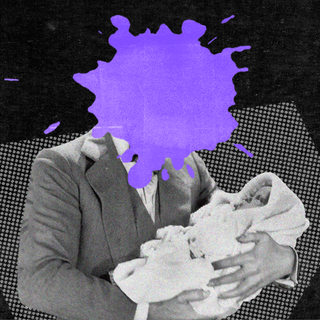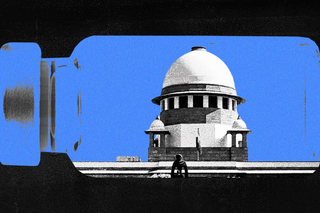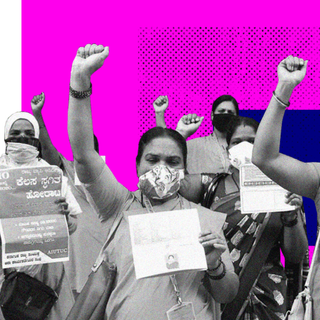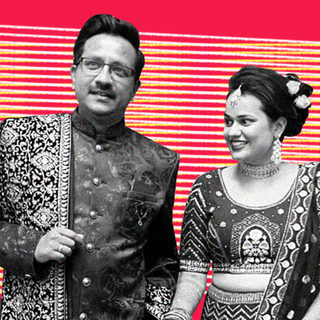
SC Says People Can’t Be Forced To Get Vaccinated, Stirs Individual Rights vs. Public Health Debate
The court directed institutions across the country to “review the relevant orders and instructions imposing restrictions on unvaccinated individuals in terms of access to public places, services and resources.”

On Monday, the Supreme Court of India ruled that no one can compel individuals to get vaccinated against Covid19; and doing so violates their bodily autonomy. Addressing the tussle between individual rights and public health, the court held that the right to bodily integrity of a person, contained in Article 21 of the Indian Constitution, also includes the right to refuse vaccines “on account of personal beliefs or preferences.”
Comprising Justices L. Nageswara Rao and B.R. Gavai, the bench was hearing a PIL filed by Dr. Jacob Puliyel, a former member of the National Technical Advisory Group on Immunization, against vaccine mandates prevalent across the country. The apex court, upon hearing arguments by the government too, explained that “Article 21 [includes] the right to refuse to undergo any medical treatment in the sphere of individual health. However, in the interest of protection of communitarian health, the government is entitled to regulate issues of public health concern by imposing certain limitations on individual rights… [But] such invasion into an individual’s right to personal autonomy and right to access means of livelihood [must meet] the threefold requirement [of] legality, which presupposes the existence of law; need, defined in terms of a legitimate state aim; and proportionality, which ensures a rational nexus between the objects and the means adopted to achieve them.”
And so, in the absence of data indicating that the risk of transmission from unvaccinated individuals is higher than that from vaccinated people, the court deemed it unconstitutional — on grounds of not meeting the proportionality-criterion — to impose vaccine mandates on the population.
As a result, it directed institutions across the country to “review the relevant orders and instructions imposing restrictions on unvaccinated individuals in terms of access to public places, services and resources… till the infection rate remains low and any new development or research finding emerges which provides due justification to impose reasonable and proportionate restrictions on the rights of unvaccinated individuals.”
Related on The Swaddle:
Tell Me More: Talking Community Medicine and Vaccine Hesitancy in India With Dr. Aqsa Shaikh
It is important to note, though, that the judgment pertains only to vaccine mandates, and not other Covid19-prevention measures like masking in public — wherever the rule continues to be in force.
Meanwhile, to curb vaccine hesitancy, the court advised making information about the merits of vaccines — as well as their demerits — easily available. The government has thus been directed to publish data regarding “adverse events following immunization from public and doctors on a publicly accessible system without compromising data of the individuals who are reporting the same.”
However, this isn’t the first time that an Indian court has adjudicated a matter pertaining to individual rights versus public health in the context of Covid19 vaccines.
In June last year, the Meghalaya High Court ruled that despite vaccinations being almost indispensable in the fight against Covid19, “forcing” people to get vaccinated would still be a violation of their fundamental rights under the Constitution. Instead, the judges urged the government to direct their efforts toward sensitizing people about the necessity of getting vaccinated amid a deadly pandemic through awareness campaigns. The court’s rationale was to facilitate informed decision-making among citizens — enabling them to understand why they need to get jabbed in their own interest, rather than coercing them into doing so.
“…vaccination by force or being made mandatory by adopting coercive methods, vitiates the very fundamental purpose of the welfare attached to it. It impinges on the fundamental right(s) as such, especially when it affects the right to means of livelihood which makes it possible for a person to live,” the bench had noted.
Related on The Swaddle:
In Tribal Communities, Public Health Officials Are Using Traditions to Dispel Vaccine Hesitancy
Subsequently, though, a court in Jammu and Kashmir had refused to grant anticipatory bail against an individual accused of disrupting vaccination drives — by instigating and provoking locals in the area by causing a “hue and cry,” which led to the vaccination drive being halted. Charged under the Indian Penal Code for endangering public health and preventing public officials from performing their duties, the court deemed his actions “not only grossly illegal but amounts to pushing the life of the people in peril, who, if not get promptly vaccinated, may fall prey to the deadly virus, [sic].”
The judge stated, “Let a message travel in the length and breadth of our society at large that no such unbecoming and illegal attempt of rumor mongers will be tolerated who are creating a hurdle in the way of vaccination drive. They will be dealt strenuously under law [sic].”
As such, courts in India appear to be of the view that while the government cannot force its citizens to get vaccinated, it can prosecute people who attempt to disrupt vaccination drives. Meanwhile, it must empower people with knowledge through outreach programs aimed at convincing them about the merits of immunization. While this does seem like a well-reasoned resolution to the rather thorny predicament that the “individual rights vs. public health” debate presents, only time can tell whether it’s practicable too.
The issue echoes a centuries’ old question of balancing the rights of individuals against that of the larger community they belong to. The crux of the debate is this: whose interests precede whose? Can collective interest stifle individual wellbeing? Or, can the rights of individuals eclipse that of a community? As a matter of public health, vaccine mandates fall under the ambit of collective rights — and the pandemic has reignited this debate, especially since the stakes literally involve matters of life and death.
The downside to waiting and watching, however, is that a failure could potentially — say, in the scenario of a far deadlier variant rising — be calamitous. But then again, there’s no way to know how effective the present vaccines would be against future variants. While we manage the apprehension of yet another wave and await the unknown, perhaps, the best course of action is what the Meghalaya High Court prescribed: educate people and spread awareness.
Devrupa Rakshit is an Associate Editor at The Swaddle. She is a lawyer by education, a poet by accident, a painter by shaukh, and autistic by birth. You can find her on Instagram @devruparakshit.
Related


Anganwadi Workers and Helpers are Entitled to Basic Social Security: SC
